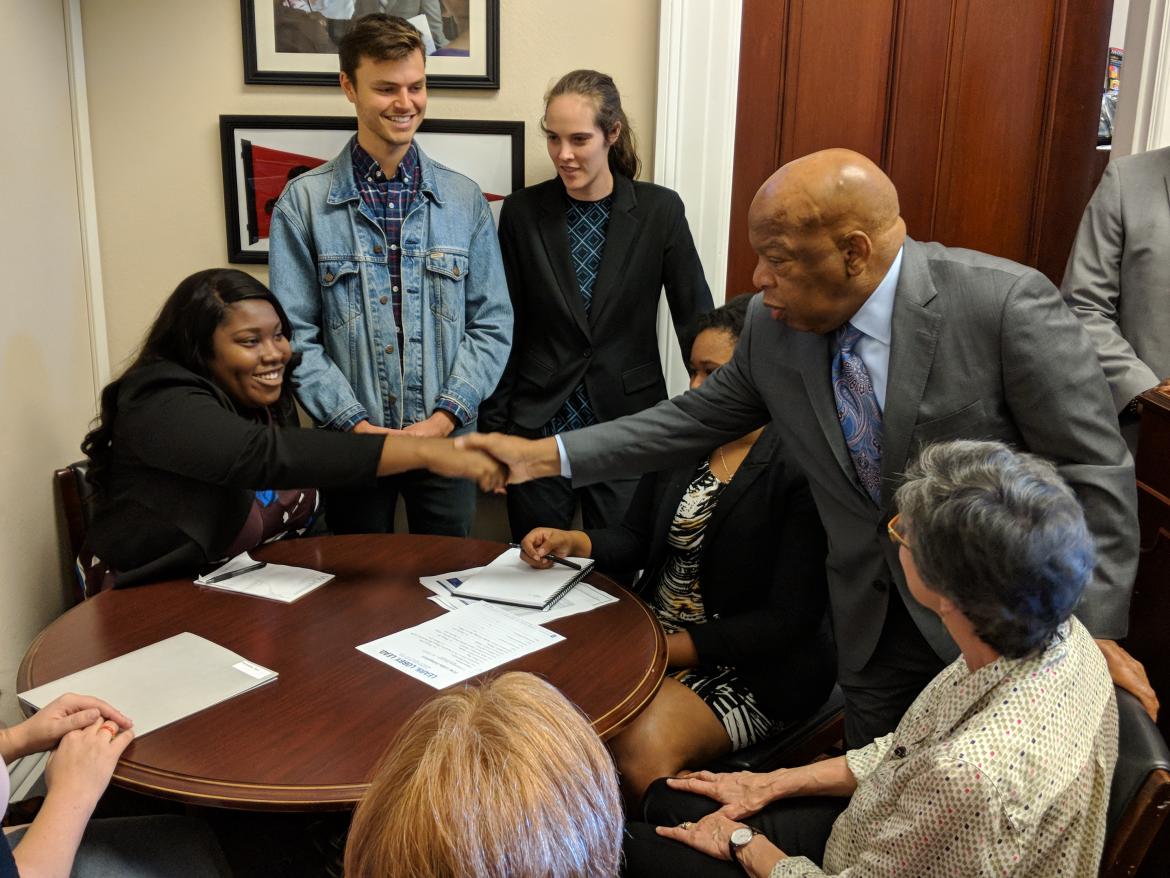If the Advocacy Teams program had a mantra, it would be this: Never stop strengthening your team’s relationship with congressional offices.
The volunteer activist group I lobby with has a great rapport with our member’s office, developed over 15 years. Recently, however, we went through of phase in which we grew too reliant on communication through email. Messages to the office were met with silence, and we realized we needed to do more.
So, we stepped up our efforts by scheduling meetings at the district office. After a series of in-person interactions, the office called us when the member was in town and asked for a meeting. We are now back on track and engaging in more meaningful actions with our member.
As Advocacy Teams, we must stay vigilant and do face-to-face meetings throughout the year. Here are four reasons why.
1. In-person meetings are where the magic happens
In-person meetings allow us to truly be present when expressing our convictions and listening to other perspectives. Remember this finding from the Congressional Management Foundation: “In three surveys of congressional staff over a 10-year span, ‘in-person visits from constituents’ was the biggest factor for influencing a member’s decision on policy.”
2. Conversations of substance emerge organically
Sharing stories in person can lead to epiphanies, realizations, and common ground. But this can only happen in person. When was the last time you had a real shift in thinking upon receiving an email? Maybe never! The same is true for congressional staff members. Email is just not as compelling as hearing from your team in person.
3. It keeps the issue you are advocating for on their radar
If we are not meeting with our members, who is? I remember waiting outside the door of a congressional office one time, and as the member’s door opened, out walked 15 men in suits. I don’t know what they were lobbying for, but I know they were not constituents. This made me realize that if we are not asking to meet with our members, someone else is getting their time and attention. Who will they listen to?
4. It nurtures and builds a stronger team
Face-to-face lobby visits inspire the entire team. Meeting with members of Congress and their staff is a team-building experience from beginning to end. Together you experience the pre-meeting jitters and the collective sigh of relief that comes when you have pulled off a successful meeting. This builds momentum for your next action steps together, and demystifies the entire process for new team members.
When you feel the months are passing by without any interactions between your team and your congressional offices, it is time to revisit why in-person meetings are important to a healthy advocacy team, a healthy relationship with your member of congress, and ultimately important in ending these endless wars.
If you have specific concerns about your connections with your members of Congress or their staff, consider reaching out to our Advocacy Teams Trainer, Theo Sitther, who is happy to do some troubleshooting to get the team back on track.


